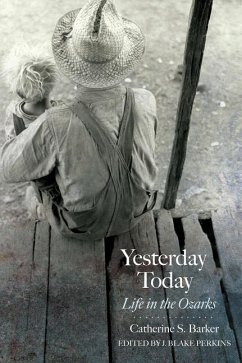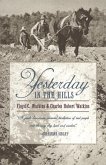"The Great Depression era witnessed the discovery of the Ozarks mountaineers in the national consciousness. Noted Ozarks chroniclers like Vance Randolph romantically depicted a simple and hardy hill culture that had presumably escaped the superficial trappings of American modernity in the region's isolated ridges and hollers. But Catherine S. Barker's 1941 book, "Yesterday Today: Life in the Ozarks," sought to illuminate another side of these "remnants of eighteenth-century life and culture": poverty and despair. Drawing on her encounters and experiences as a federal social worker in the backwoods of the southeastern Ozarks in the 1930s, Barker described the mountaineers as "lovable and pathetic and needy and self-satisfied and valiant," declaring that the virtuous and independent people of the hills deserved a "better way" and a "more abundant life." Though often overshadowed by other Ozarks writings, this reprinting--edited and introduced by historian J. Blake Perkins--situates "Yesterday Today" in its proper place among the great Depression-era chronicles of the Ozarks"--
Bitte wählen Sie Ihr Anliegen aus.
Rechnungen
Retourenschein anfordern
Bestellstatus
Storno








